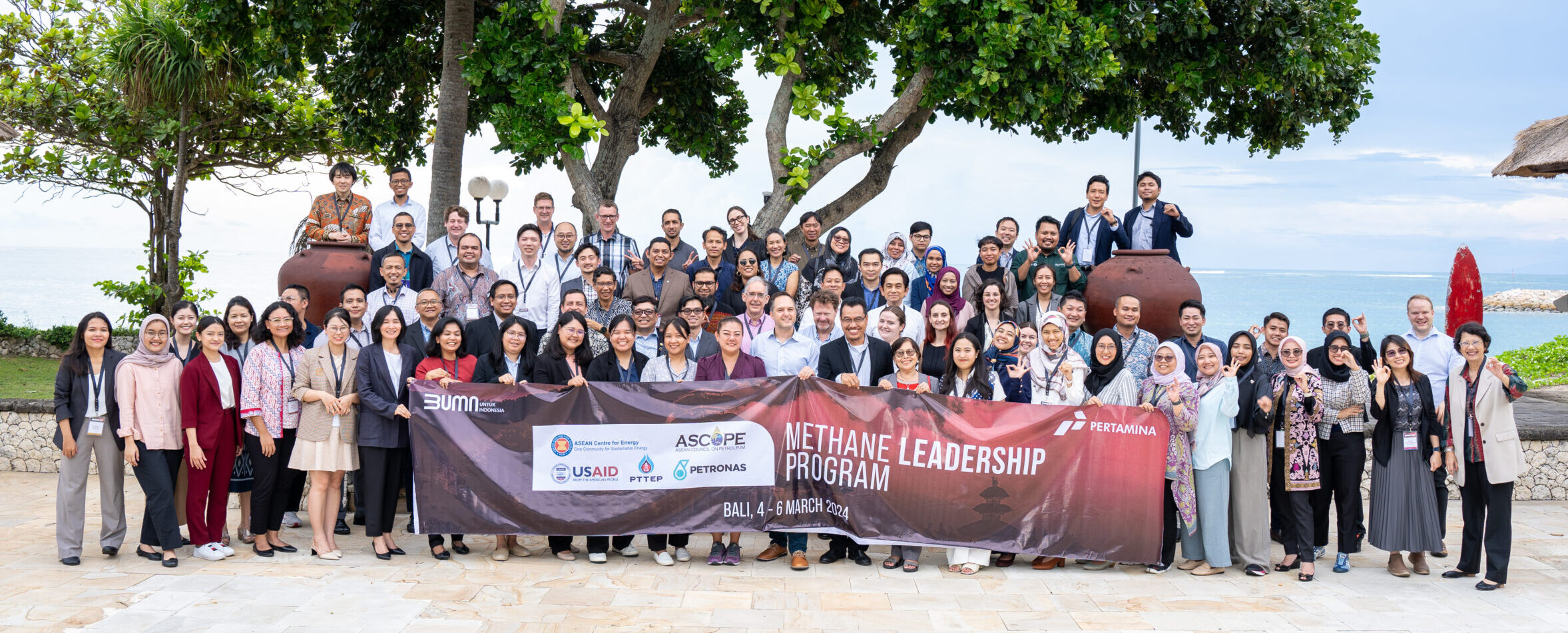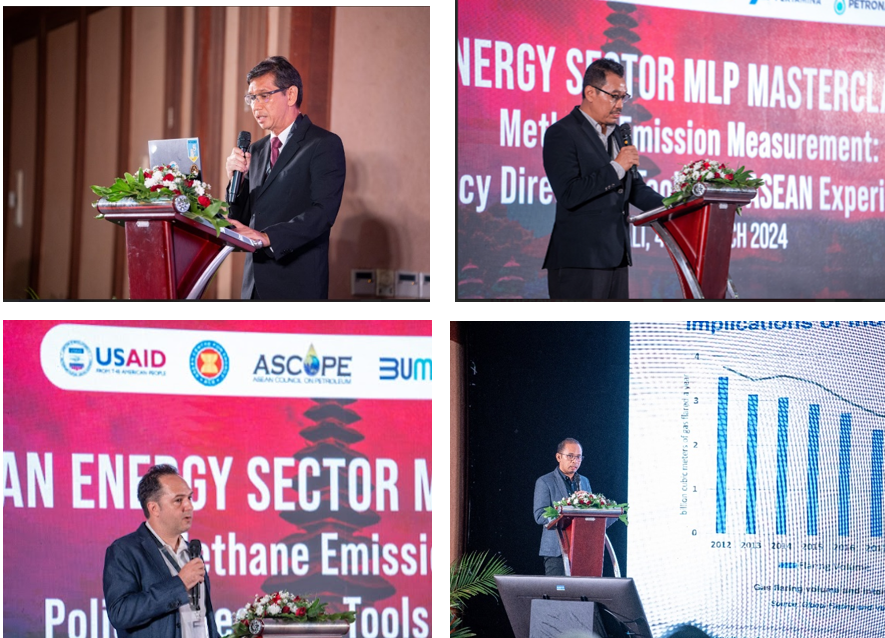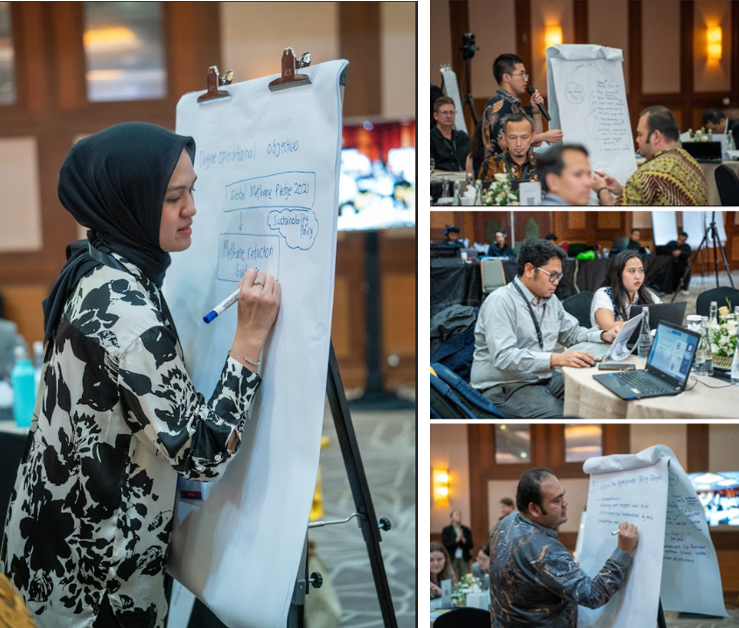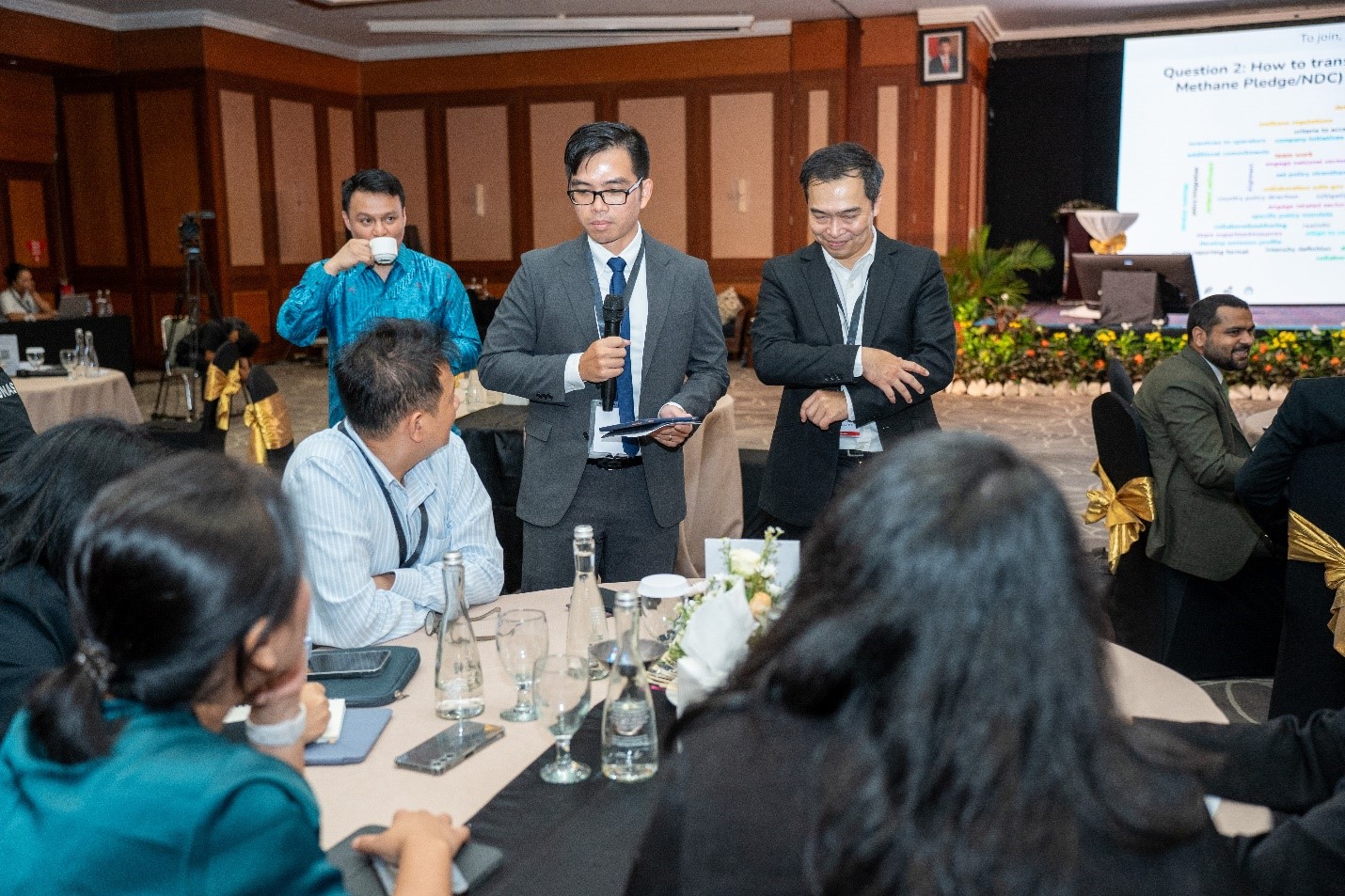Menu

Photo 1. Methane Leadership Program (MLP) participants.
Reducing methane emissions represents one of the fastest and most effective ways to slow warming in the next 20 years. It is estimated that reducing current global methane emissions by 45 percent would reduce global warming by 0.3 degrees Celsius in 2040 (UNEP 2021). The Association of Southeast Asian Nations (ASEAN) region, specifically the ASEAN energy sector, can be a key player in achieving these global methane reductions. Currently, 24 percent of ASEAN’s total methane emissions come from the energy sector, and it is estimated that ASEAN’s energy demand in 2050 will triple from 2020 levels, with energy-related methane emissions predicted to reach roughly 1,100 MtCO2-e by 2050 (7th ASEAN Energy Outlook, ACE 2022).
The ASEAN Methane Leadership Program (MLP) promotes collaboration between oil and gas (O&G) industry leaders and Member State policymakers to reduce GHG emissions in line with the regional blueprint ASEAN Plan of Action for the Energy Cooperation (APAEC) Phase II: 2021-2025 strategy to achieve energy security, accessibility, affordability, and sustainability for all.
In the decarbonisation marathon to achieve the Paris Agreement goal of limiting global warming to below 2 Celsius compared to pre-industrial levels, the ASEAN Methane Leadership Program is running the methane sprint.

Photo 2. Opening remarks were delivered by Suripno Suripno of Pertamina, Dr. Erlangga Septama of ASCOPE, and David Stonehill of USAID RDMA.
Additionally, Beni Suryadi, Manager of ACE presented the ASEAN Policy Directions on Methane.
Through the second ASEAN Methane Leadership Program masterclass training and first MLP workshop on “Methane Emission Measurement: Policy Direction, Tools, and ASEAN Experiences,” the MLP increased the capacity of regional O&G companies to manage methane emissions and exemplified the team spirit and collaboration required to reduce methane emissions in the short-term. Organised by USAID Southeast Asia Smart Power Program (SPP) in collaboration with Pertamina, the ASEAN Centre for Energy (ACE), the ASEAN Council on Petroleum (ASCOPE), and MLP members, this 3-day event provided 81 attendees from 15 countries with a greater understanding of methane inventory tools, baseline setting, and methane abatement.

Photo 3. Participants discussed in groups and presented outcomes in interactive exercises during the workshop
The first two days of the Masterclass training focused on the global policy landscape for methane emission management and methane data management tools. The first day featured a presentation from ACE on ASEAN Methane Policy Direction, a panel discussion on the Overview of Global Methane Policies and Regulations in the O&G sector, and an interactive exercise led by the U.S. Commercial Law Development Program on frameworks for developing and implementing a companywide abatement policy. On the second day, Carbon Limits provided an overview of methane inventories and led participants through an interactive training exercise on Mist, an OGMP2.0 compatible tool that enables O&G companies, regulators, and other stakeholders to develop methane emission inventories and identify cost-effective methane abatement activities.
The last day of the workshop featured peer-to-peer presentations, knowledge sharing, and a facilitated call to action roundtable. During the peer-to-peer presentations, regional companies [Petronas, Pertamina, PTT Exploration and Production (PTTEP), Woodside Energy, International Petroleum Exploration (INPEX), Japan Organization for Metals and Energy Security (JOGMEC), and Asia Natural Gas Energy Association (ANGEA)] shared their experiences and lessons learned from their methane emission management journeys’. Embodying the collaboration and focus on action required to reduce methane emissions in the short term, the workshop concluded with a call-to-action roundtable. In the call-to-action roundtable, and moderated a peer-to-peer discussion on actions and support needs leading up to and following the joint statement announcement.

Photo 4. Tung Phuong, Senior Officer of USAID SPP at ACE, moderating the call-to-action roundtable
Overall, there were 49 participants awarded certificates based on their pre and post-test learning results from the workshop. The Pre and Post-test results demonstrated that participants significantly improved their understanding of data required for OGMP level 4, using the Mist tool and emission factors for methane emission estimation. After completing this Masterclass, most participants reported they were more confident using Mist for managing methane data and had a better understanding of methane policies and regulations.
Following the success of the second Masterclass and first Workshop with 49 certified participants, MLP partners are preparing for the next training instalments focusing on the investment decision approach to methane abatement projects, methane abatement project financing options, and sharing of experiences financing methane abatement projects.
The workshop materials can be downloaded from here.
Related article:
